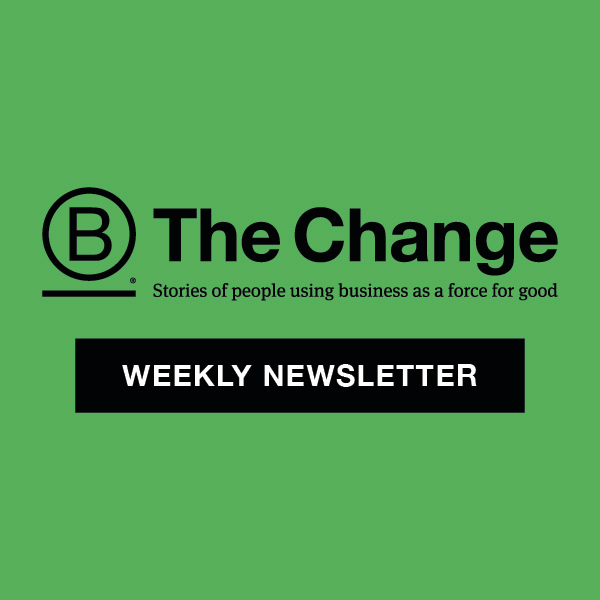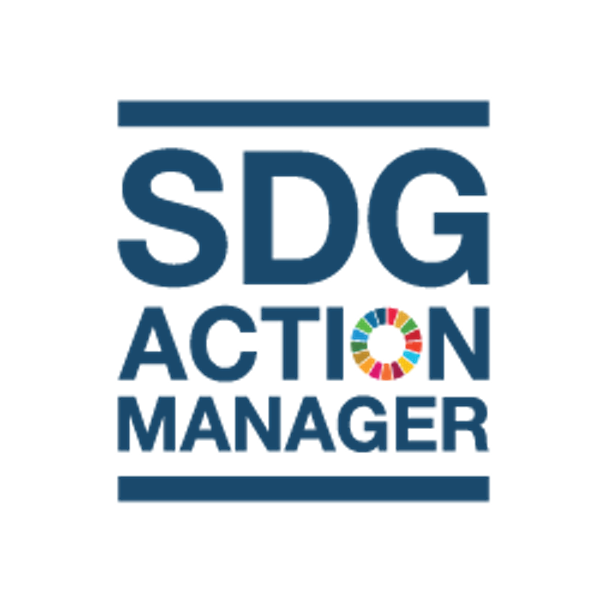How Fairtrade International and B Corp Companies Are Strengthening Supply Chains and Shaping a Stakeholder Economy
December 14, 2021
Partnership Presents an Opportunity for Collaboration and Meaningful Action on the Sustainable Development Goals
Some of the world’s most common and popular goods — cotton, coffee, cocoa — are produced by industries known for low wages and questionable labor practices. The industries also present an opportunity for global social and environmental change and action in alignment with the UN Sustainable Action Goals (SDGs).
The SDGs are more than a global call to action to pursue peace and prosperity for people and the planet. They also call for collaboration and partnerships that can accelerate progress toward a more sustainable and inclusive economy and planet. Two organizations heeding that call are B Lab, the nonprofit that oversees B Corp Certification, and Fairtrade International, the world’s most recognized label for social justice and sustainability.
In announcing their partnership earlier this year, B Lab and Fairtrade International highlighted the role of their shared values — responsible business practices, sustainable supply chains, and global corporate transparency — in advancing the SDGs and leading the shift toward a stakeholder economy. Building on that shared foundation, they will collaborate and share knowledge to develop standards, advocacy, public campaigns and mobilization, and work together to create programs and projects in pursuit of the SDGs.
Companies with both Fairtrade International and B Corp Certification already are setting the pace on SDG progress by bringing care and resiliency into supply chains around the world:
- B Lab’s social and environmental business standards define how businesses can be a force for good. Based on stakeholder input, research, and established best practices, these standards are the basis for B Corp Certification requirements as well as B Lab’s impact management tools.
- The Fairtrade Standards are designed to support the sustainable development of small producer organizations and agricultural workers in low- and middle-income countries. These rigorous standards incorporate a holistic blend of social, economic, and environmental criteria.

Subscribe to B The Change Weekly
Learn more about the growing movement of Certified B Corporations using business as a force for good, and sign up to receive the B The Change Weekly newsletter for more stories like this one, delivered straight to your inbox once a week.
By choosing both B Corp and Fairtrade International certifications, businesses demonstrate their commitment to sustainability and social impact. They’re also raising public awareness of the connection between our changing climate and people’s livelihoods, and how businesses can act on both global challenges.
As consumers increasingly look to spend their dollars with businesses that are mindful of social and environmental impact, the B Corp and Fairtrade International certifications together indicate companies that have been evaluated for their positive impact on people and the planet. B The Change talked with leaders at two companies that have both certifications to learn more about their mission and their hopes to expand on it in the future.
Partnering with Cotton Farmers on the Transition to Regenerative Agriculture
California-based Gallant International Inc. creates bags and accessories made from organic and Fairtrade certified cotton products. Founder Vik Giri says the company works directly with Fairtrade certified farmers in India and pays them premium prices. By prefinancing the next harvest, Gallant also helps the farmers buy organic cotton seeds.
“This is important because as the demand for organic cotton increases around the world, so does the lack of transparency,” Giri says. “Just because a brand is using organic cotton doesn’t mean that farmers are getting a share of that success or that we know where that cotton is coming from. Thus, working in conjunction with farmers — understanding their needs season to season — is essential for us, and we’re happy to pay a premium or buy in advance to give farmers some financial peace of mind.”
Because GMO cotton has been rampant in India, he says organic cotton seeds are vital to helping the farming community expand their production of organic cotton. Gallant also is helping more than 400 farmers transition to regenerative agriculture practices that protect the soil’s future health.
“Regenerative organic agriculture has many benefits, such as producing nutrient-rich food, improving air and water quality, and providing extra income for farmers through intercropping and crop rotation,” Giri says. “We see it as the future.”
Gallant manufactures its products in Fairtrade certified factories that are true partners in its business.
“These are factories we know personally, visit often, and care to support as they develop. For instance, we’re investing in solar for one of the factories that produces our products,” Giri says. “This collaborative effort is not only needed in the fashion sector, but one that’s also having a real impact on workers who can work in a facility that respects them as human beings, and not a machine.”

Through its sustainable backpacks, bags, and accessories brand Terra Thread, Gallant contributes to Feeding America’s campaign to end hunger in the U.S. With a matching fund from Tony Robbins, so far Gallant has contributed over a million meals to people in need.
“Since we have been in this business for over a decade, particularly through Gallant, we have found that B Corp’s guiding principles helped us implement and achieve many social, and environmental pressing issues we are facing today. For example, our products are carbon neutral, our farmers and workers are paid fair wages and prices for their produce and work, and our team members are taught to live sustainable lifestyles by wasting less, consuming less, recycling and reusing.”

SDG Action Manager
To support businesses pursuing the Sustainable Development Goals (SDGs), B Lab and the United Nations Global Compact along with content advisors developed the SDG Action Manager. This impact management solution enables businesses worldwide to set goals, track progress, and stay motivated on their actions toward the SDGs.
Cocoa Farmers Gain a Louder Voice Through Co-Ownership
In an industry known for low wages and cocoa prices, Divine Chocolate has a commitment to do business differently through an innovative business model that champions farmers. Divine Chocolate creates award-winning chocolate as the first and only Fairtrade and B Corp Certified chocolate company co-owned by cocoa farmers.

Through co-ownership of Divine Chocolate, Kuapa Kokoo — founded in 1993 by cocoa farmers in Ghana — has a 40% board representation in the company, providing a significant influence on the strategic decisions of the business and a voice and presence for the farmers. It also helps shape the company’s work to achieve sustainable livelihoods for smallholder cocoa farmers and their households to be resilient to stresses and shocks such as the impacts of climate change, market fluctuations, and global pandemics.
Troy Pearley, Executive Vice President and General Manager for Divine Chocolate North America, says the values behind the certifications are infused throughout the company — from its ownership model to its environmental practices. “To me, B Corp and Fairtrade represent the ‘we’ not ‘me,’ which mirrors Divine Chocolate as a whole,” he says. “We are a global social enterprise focused on building a sustainable and fair world.”
The farmer-centric approach ensures that Divine Chocolate invests in projects that support farmer households and communities to secure sustainable livelihoods. By working with farmer co-operatives, the company helps identify and understand local investment needs. Although Fairtrade Premium projects vary depending on the needs of each farmer group and country, tackling the root causes of poverty is a common theme in all cocoa- and sugar-growing communities.
Guaranteeing at least the Fairtrade Minimum Price for cocoa farmers protects them from market price fluctuations and allows them to select community programs to invest their premiums in. Divine Chocolate also invests yearly in farmer-led producer support and development that address challenges such as women’s literacy and fair labor practices.
In addition to earning at least the Fairtrade Minimum Price, farmers also earn the Fairtrade Premium for their cocoa. They democratically decide how to invest their Premium funds, often spending it on community projects such as wells or clinics, on infrastructure or business improvements, or simply on cash support for farmers.
Sign Up for our B The Change Newsletter
Read stories on the B Corp Movement and people using business as a force for good. The B The Change Newsletter is sent weekly.